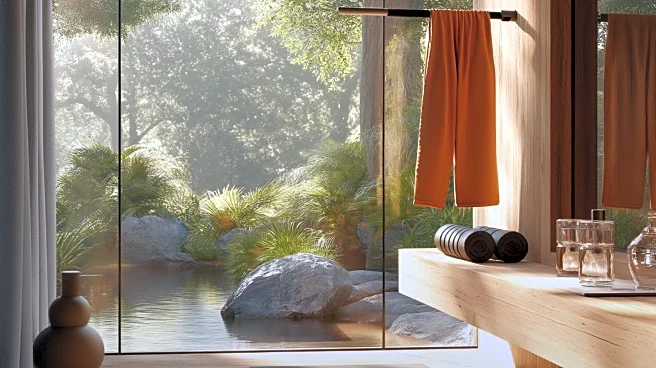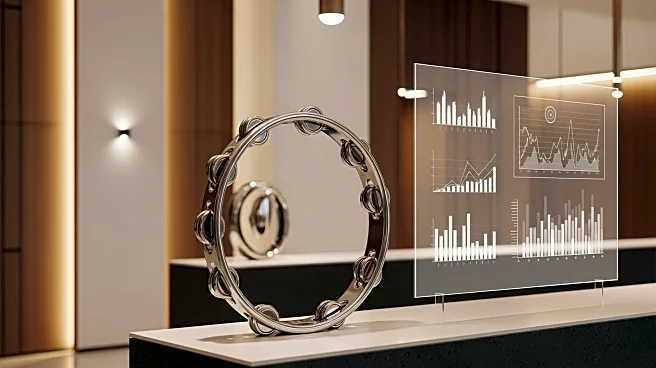What's Happening?
The JW Marriott Hotel Tokyo has unveiled a significant expansion in the Takanawa Gateway City district, emphasizing Zen principles and local natural elements. Designed by Yabu Pushelberg, the hotel aims
to create an environment of tranquility and harmony through its architectural features and curated art installations. The property offers 200 guest accommodations, utilizing serene colors and natural textures. Additionally, the hotel plans to introduce a category of rooms dedicated to holistic wellness, enhancing personalized guest experiences. The culinary offerings are led by a seasoned director, featuring collaborations with Michelin-starred chefs.
Why It's Important?
This expansion reflects a growing trend in the hospitality industry towards integrating Zen principles and holistic wellness into hotel design. By focusing on tranquility and personalized experiences, the JW Marriott Hotel Tokyo differentiates itself from competitors, appealing to guests seeking relaxation and well-being. The introduction of wellness rooms highlights the increasing demand for health-focused accommodations, potentially influencing other hotels to adopt similar strategies. This move could impact the U.S. hospitality market by setting new standards for luxury and wellness-oriented travel experiences.
What's Next?
The JW Marriott Hotel Tokyo plans to launch its holistic wellness rooms later this year, which may attract attention from international travelers and industry stakeholders. As the trend towards wellness and Zen-inspired design grows, other hotels might consider similar expansions to meet evolving guest preferences. The collaboration with Michelin-starred chefs could also set a precedent for culinary excellence in hotel dining, encouraging other establishments to enhance their food offerings.
Beyond the Headlines
The emphasis on Zen principles and holistic wellness in hotel design may lead to broader cultural shifts in the hospitality industry, promoting mindfulness and sustainability. This approach could influence architectural trends, encouraging the use of natural materials and serene aesthetics. Additionally, the focus on personalized wellness experiences may drive innovation in guest services, fostering a more health-conscious travel culture.









